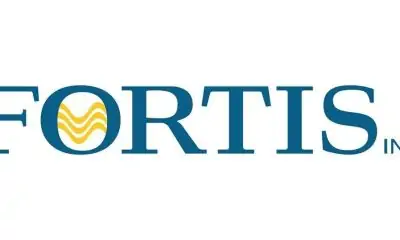Officials say final say rests with cabinet, noting ministers have the power to ask for more information, which would mean extending the deadline
Business
Teck’s massive $20.6-billion oilsands project could be delayed

OTTAWA — The Canadian government has the power to delay a decision on whether to approve a massive new oilsands project, a key cabinet minister said on Tuesday, a sign Ottawa could push back what will be a contentious decision.
Ottawa must decide by end-February if Teck Resources Ltd can build the $20.6 billion (US$15.7 billion) Frontier mine in northern Alberta, capable of eventually producing 260,000 barrels of crude oil per day.
If the minority Liberal government of Prime Minister Justin Trudeau says yes, it would call into question his promise to reduce greenhouse gas emissions to net zero by 2050. But saying no could infuriate Alberta, already angry over what local politicians claim is Ottawa’s bias against the energy industry.
“Cabinet can make a decision to approve, it can make a decision to reject, it can make a decision to delay,” Environment Minister Jonathan Wilkinson told reporters.
“I’m not going to opine on what that decision is going to be,” said Wilkinson, who must formally decide whether to approve the project or refer the matter to cabinet.
Officials say the final say will rest with cabinet, noting ministers have the power to ask for more information about the project. This would mean extending the end-February deadline.
“Obviously this government has made commitments with respect to addressing greenhouse gas emissions and we would have to ensure that they fit within that context,” said Wilkinson.
Alberta premier Jason Kenney said on Tuesday that Frontier had been through years of rigorous environmental scrutiny and added “It’s time this $20 billion project got approved.”
Trudeau has repeatedly said Canada will need to rely on crude oil for years to come as it moves to build a cleaner economy. The project has also split the country’s Indigenous people, whose living standards Trudeau vows to improve.
“The Trudeau government needs to show us how they will support the workers and communities currently dependent on oil as we meet the 2050 deadline for a fossil fuel-free economy, not approve a massive new oilsands mine to operate until 2067,” said Greenpeace Canada campaigner Keith Stewart.
By Thomson Reuters
Business
Stop Asking Your Interviewer Cliché Questions

Most job search advice is cookie-cutter. The advice you’re following is almost certainly the same advice other job seekers follow, making you just another candidate following the same script.
In today’s hyper-competitive job market, standing out is critical, a challenge most job seekers struggle with. Instead of relying on generic questions recommended by self-proclaimed career coaches, which often lead to a forgettable interview, ask unique, thought-provoking questions that’ll spark engaging conversations and leave a lasting impression.
English philosopher Francis Bacon once said, “A prudent question is one half of wisdom.”
The questions you ask convey the following:
- Your level of interest in the company and the role.
- Contributing to your employer’s success is essential.
- You desire a cultural fit.
Here are the top four questions experts recommend candidates ask; hence, they’ve become cliché questions you should avoid asking:
- “What are the key responsibilities of this position?”
Most likely, the job description answers this question. Therefore, asking this question indicates you didn’t read the job description. If you require clarification, ask, “How many outbound calls will I be required to make daily?” “What will be my monthly revenue target?”
- “What does a typical day look like?”
Although it’s important to understand day-to-day expectations, this question tends to elicit vague responses and rarely leads to a deeper conversation. Don’t focus on what your day will look like; instead, focus on being clear on the results you need to deliver. Nobody I know has ever been fired for not following a “typical day.” However, I know several people who were fired for failing to meet expectations. Before accepting a job offer, ensure you’re capable of meeting the employer’s expectations.
- “How would you describe the company culture?”
Asking this question screams, “I read somewhere to ask this question.” There are much better ways to research a company’s culture, such as speaking to current and former employees, reading online reviews and news articles. Furthermore, since your interviewer works for the company, they’re presumably comfortable with the culture. Do you expect your interviewer to give you the brutal truth? “Be careful of Craig; get on his bad side, and he’ll make your life miserable.” “Bob is close to retirement. I give him lots of slack, which the rest of the team needs to pick up.”
Truism: No matter how much due diligence you do, only when you start working for the employer will you experience and, therefore, know their culture firsthand.
- “What opportunities are there for professional development?”
When asked this question, I immediately think the candidate cares more about gaining than contributing, a showstopper. Managing your career is your responsibility, not your employer’s.
Cliché questions don’t impress hiring managers, nor will they differentiate you from your competition. To transform your interaction with your interviewer from a Q&A session into a dynamic discussion, ask unique, insightful questions.
Here are my four go-to questions—I have many more—to accomplish this:
- “Describe your management style. How will you manage me?”
This question gives your interviewer the opportunity to talk about themselves, which we all love doing. As well, being in sync with my boss is extremely important to me. The management style of who’ll be my boss is a determining factor in whether or not I’ll accept the job.
- “What is the one thing I should never do that’ll piss you off and possibly damage our working relationship beyond repair?”
This question also allows me to determine whether I and my to-be boss would be in sync. Sometimes I ask, “What are your pet peeves?”
- “When I join the team, what would be the most important contribution you’d want to see from me in the first six months?”
Setting myself up for failure is the last thing I want. As I mentioned, focus on the results you need to produce and timelines. How realistic are the expectations? It’s never about the question; it’s about what you want to know. It’s important to know whether you’ll be able to meet or even exceed your new boss’s expectations.
- “If I wanted to sell you on an idea or suggestion, what do you need to know?”
Years ago, a candidate asked me this question. I was impressed he wasn’t looking just to put in time; he was looking for how he could be a contributing employee. Every time I ask this question, it leads to an in-depth discussion.
Other questions I’ve asked:
- “What keeps you up at night?”
- “If you were to leave this company, who would follow?”
- “How do you handle an employee making a mistake?”
- “If you were to give a Ted Talk, what topic would you talk about?”
- “What are three highly valued skills at [company] that I should master to advance?”
- “What are the informal expectations of the role?”
- “What is one misconception people have about you [or the company]?”
Your questions reveal a great deal about your motivations, drive to make a meaningful impact on the business, and a chance to morph the questioning into a conversation. Cliché questions don’t lead to meaningful discussions, whereas unique, thought-provoking questions do and, in turn, make you memorable.
_____________________________________________________________________
Nick Kossovan, a well-seasoned veteran of the corporate landscape, offers “unsweetened” job search advice. You can send Nick your questions to artoffindingwork@gmail.com.
Business
Canadian Natural Resources reports $2.27-billion third-quarter profit

CALGARY – Canadian Natural Resources Ltd. reported a third-quarter profit of $2.27 billion, down from $2.34 billion in the same quarter last year.
The company says the profit amounted to $1.06 per diluted share for the quarter that ended Sept. 30 compared with $1.06 per diluted share a year earlier.
Product sales totalled $10.40 billion, down from $11.76 billion in the same quarter last year.
Daily production for the quarter averaged 1,363,086 barrels of oil equivalent per day, down from 1,393,614 a year ago.
On an adjusted basis, Canadian Natural says it earned 97 cents per diluted share for the quarter, down from an adjusted profit of $1.30 per diluted share in the same quarter last year.
The average analyst estimate had been for a profit of 90 cents per share, according to LSEG Data & Analytics.
This report by The Canadian Press was first published Oct. 31, 2024.
Companies in this story: (TSX:CNQ)
The Canadian Press. All rights reserved.
Business
Cenovus Energy reports $820M Q3 profit, down from $1.86B a year ago

CALGARY – Cenovus Energy Inc. reported its third-quarter profit fell compared with a year as its revenue edged lower.
The company says it earned $820 million or 42 cents per diluted share for the quarter ended Sept. 30, down from $1.86 billion or 97 cents per diluted share a year earlier.
Revenue for the quarter totalled $14.25 billion, down from $14.58 billion in the same quarter last year.
Total upstream production in the quarter amounted to 771,300 barrels of oil equivalent per day, down from 797,000 a year earlier.
Total downstream throughput was 642,900 barrels per day compared with 664,300 in the same quarter last year.
On an adjusted basis, Cenovus says its funds flow amounted to $1.05 per diluted share in its latest quarter, down from adjusted funds flow of $1.81 per diluted share a year earlier.
This report by The Canadian Press was first published Oct. 31, 2024.
Companies in this story: (TSX:CVE)
The Canadian Press. All rights reserved.
-

 News21 hours ago
News21 hours agoJacques Villeneuve calls thieves of late father’s bronze monument soulless idiots
-

 News21 hours ago
News21 hours agoB.C. port employers to launch lockout at terminals as labour disruption begins
-

 Politics21 hours ago
Politics21 hours agoRFK Jr. says Trump would push to remove fluoride from drinking water. ‘It’s possible,’ Trump says
-

 News21 hours ago
News21 hours agoNova Scotia Liberals release four-year $2.3-billion election platform
-

 News21 hours ago
News21 hours agoPoilievre asks premiers to axe their sales taxes on new homes worth under $1 million
-

 News21 hours ago
News21 hours ago‘Canada is watching’: New northern Alberta police service trying to lead by example
-

 News21 hours ago
News21 hours agoAlabama Gov. Kay Ivey treated for dehydration at campaign rally
-

 News21 hours ago
News21 hours agoManitoba eyes speedier approval, more Indigenous involvement in mining sector






























